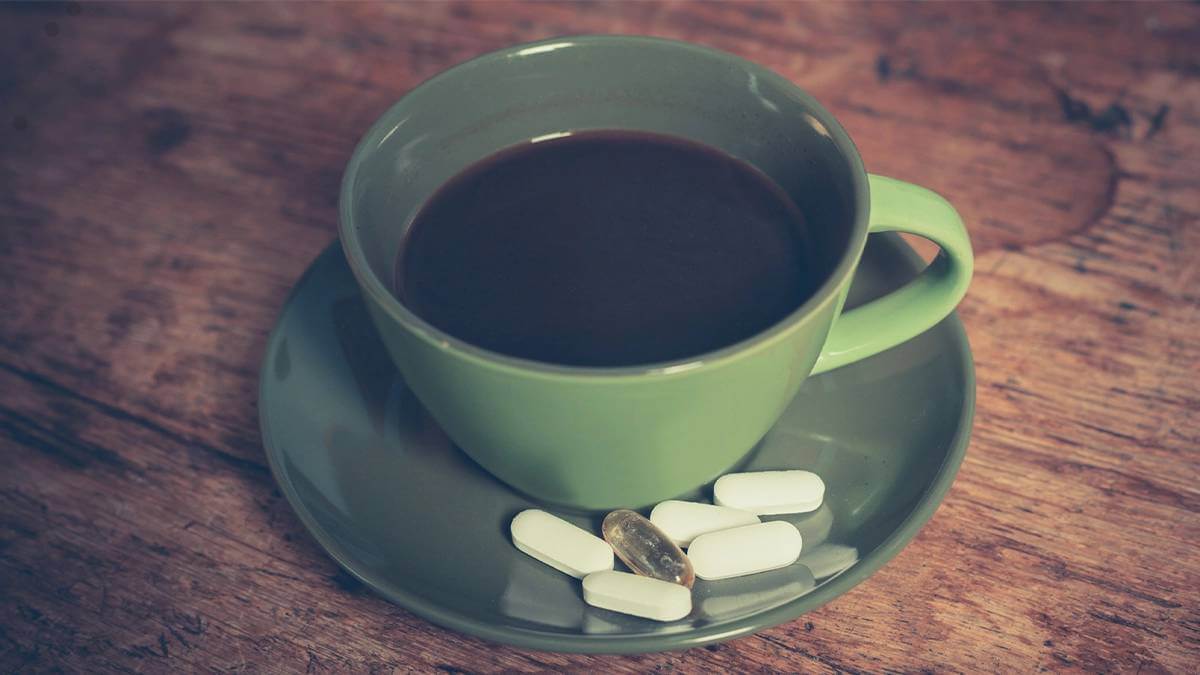Are you a coffee enthusiast who has been prescribed antibiotics and find yourself wondering whether they would be okay to consume alongside each other? Concerned about the possible interactions between Coffee and antibiotics also?
Although most people agree that coffee is safe to consume with antibiotics, some particular antibiotics can induce interactions and hence endanger it. The common name for these antibiotics is quinolone. We will also discuss what to do in this situation and the possible side effects of combining these two concurrently.
This brief guide will enable you to safely use Antibiotics while drinking Coffee. We will educate you by explaining all the possible interactions between Coffee and Antibiotics. Stay with us as we uncover its details.
Coffee And Antibiotics Interactions
You must be well informed about all the potential interactions if you are a coffee guy taking antibiotics. Moderate caffeine intake is generally considered safe, but it may affect some antibiotics present in your system.
Quinolone Antibiotics
Quinolone antibiotics are antibiotics that interact with caffeine or Coffee. These are usually prescribed to treat bacterial infections. These inhibit the enzymes that bacteria need to replicate and survive.
Research proved compounds like polyphenols interact with the absorption of quinolone antibiotics in the digestive system. It reduces the amount of the antibiotic that reaches the bloodstream and reduces the impact of Antibiotics. It can also cause side effects like headaches, increased heart rate, trouble sleeping, and jitteriness.
Here are some of the renowned quinolone Antibiotics. Avoid them or consult with your doctor about using them with Coffee.
-
Enoxacin
-
Grepafloxacin
-
Norfloxacin
-
Levofloxacin
-
Trovafloxacin
-
Ciprofloxacin
Take quinolone antibiotics with water and avoid caffeinated beverages for at least two hours before or after taking it. It will keep you safe from all kinds of problems.
Side Effects Of Taking Antibiotics And Coffee Together
Taking antibiotics and Coffee together may have some interactions. These interactions will develop some side effects. These can be both mild and serious. Here are some of the both mild and serious side effects.
Mild Side Effects:
Here are some of the mild side effects you may face due to these interactions.
-
Decreased Absorption: Some antibiotics, like fluoroquinolones and tetracyclines, can bind with minerals in Coffee. These minerals can limit its absorption. It may have an impact on the antibiotic’s overall effectiveness.
Gastrointestinal Distress: Gastrointestinal infections are the second often mentioned possible side effect of taking Coffee with antibiotics. Usually, these comprise disorders including stomach issues, nausea, vomiting, and diarrhea.
Increased heart rate: Coffee is a stimulant that raises heart rate; antibiotics might enhance this impact. It could also bring palpitations or restlessness.
Severe Side Effects:
In the worst case scenario, it could cause these serious side effects. Seek immediate medical attention if you experience any of these symptoms.
-
Caffeine Metabolism: Liver enzymes are used to break down caffeine when antibiotics like fluoroquinolones and macrolides are taken. It could cause the blood level of coffee to rise.
-
Seizures: Antibiotics like amoxicillin and cephalosporins can lower the level at which a seizure starts. If you use them with coffee (caffeine), you might be more likely to have seizures.
-
How Well Antibiotics Work: Compounds in coffee could bind to antibiotics and make them less effective. Antibiotics like quinolones and tetracyclines often do this.
What Would You Do If You Took Them Both At Once?
Here are some things to try if antibiotics with coffee cause side effects.
-
If you encounter adverse symptoms, call your doctor immediately. He’ll advise you based on your symptoms.
-
See a doctor immediately or call emergency services if you have any major symptoms such difficulty breathing or a fast heart rate.
-
Changing the dosage or switching drugs is another way to help with the bad effects of coffee with antibiotics. See your doctor for the finest advise.
Guidelines for Appropriate Antibiotic Use
Use these advice to maximize antibiotics’ benefits and avoid negative effects.
-
The most crucial is to exactly follow the directions.
-
Always check the expiration date; be cautious not to utilize any unneeded medication.
-
These drugs are delicate, hence you should not self- diagnose using them.
-
Discuss your coffee consumption, caffeine allergies, and any other medical problems you might have with your doctor before using it.
-
Make sure you keep drugs properly arranged. Keep it cool, sheltered somewhere away from direct sunlight.
-
Store medications correctly. Keep it temperate in temperature; avoid direct sunlight and moisturize.
-
Don’t double up should you miss a dosage.
-
See your doctor should unanticipated side symptoms arise.
-
Steer clear of consuming recreational drugs alongside it.
-
While on antibiotics, keep your caffeine intake under control.
-
Eat sensible, get enough sleep, and work out. These good lifestyle choices will speed your recovery.
Final Words
Yes, you can drink Coffee with antibiotics. Normal amounts of Coffee, like 3 to 4 cups a day, are safe to use. But there is a type of antibiotic known as Quinolone that is considered sensitive for caffeinated items like Coffee. It decreases its effect and may cause certain side effects.
Before using antibiotics, you should let your doctor know about all you consume—including all your medications, nicotine, or caffeine. See a doctor right away in case negative effects from the interaction compromise your safety.


